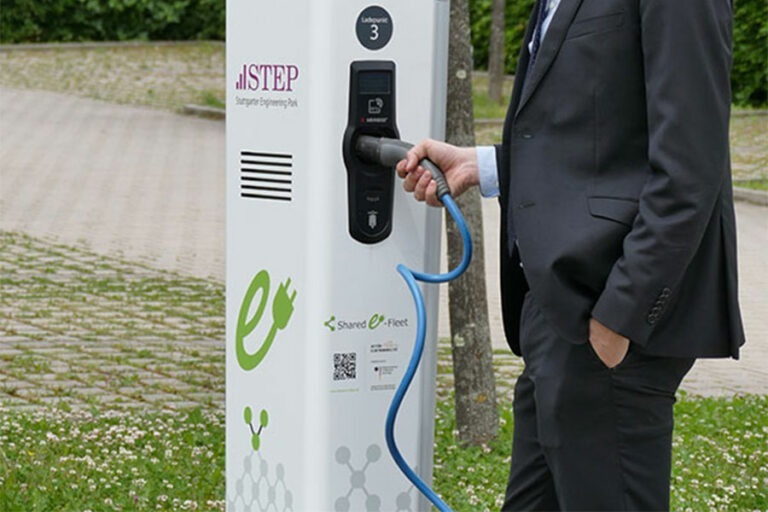Home Information station Electromobility in the company Shared efleet: Cloud platform for cross-company e-car sharing
Electromobility is the basis for an environmentally friendly and energy-efficient mobility concept in the company. In order to increase the utilization of the e-vehicles and to increase the economic efficiency, the int egration of a sharing model is worthwhile. The aim of the Shared E-Fleet project was therefore to develop a modern booking platform for the use of commercial e-vehicle fleets across company boundaries. The model, which was successfully tested in business parks and at the Magdeburg city administration, combined state-of-the-art technology with intelligent fleet and energy supply systems and proves that e-fleets can be organized in an economically sustainable manner with the right software.



The economic use of e-mobility is the most important argument for its rapid spread,” says Frank Meißner, project manager at consortium leader Carano Software Solutions. “Even before the complexity of use, this forms the biggest barrier among companies. Both factors are closely related to each other. We have integrated the various complex sub-functions in such a way that users perceive them as one application.
Frank Meißner, Project Manager
Period
December 2014 until December 2017
Result
Development of a cloud platform incl. Vehicle opening with app
Intelligent deployment planning led to 20% less CO2 and 10% cost reduction
Destination
Design and implementation of an integrated, cloud-based ICT solution for the intelligent operation of shared electric vehicle fleets

The Shared E-Fleet project networks various IT solutions and components into a mobility system and integrates fleet management, energy management and traffic data in a cloud solution. The integration of public transport for intermodal trips, partner models for the use and billing of other fleets, and the simulation and analysis of demand forecasts were also investigated for future mobility management.
Sustainability and economic efficiency do not have to be opposites, as the Shared E-Fleet project has shown.
For successful e-car sharing, vehicle and charging station manufacturers must develop standards for interfaces, access authorizations, charging control, and access to live operating data. For the further spread of electromobility, policymakers must remove legal and tax barriers and create incentives for charging at home. The consortium recommends that companies, public authorities and other organizations add electric vehicles to their fleets and test the benefits – with suitable IT solutions.
The Shared E-Fleets practical guide shows how e-vehicles can be used jointly across several companies and organizations and which IT solutions are required for this. It is aimed at companies, public authorities, municipalities and fleet managers.
You can download the practical guide “Shared E-Fleet” from the IAO Shop.
The research project was divided into a total of five thematic blocks, which answered various questions:

We will be happy to support you at any time – from a no-obligation initial consultation to expert support, on the phone, in person or online.

On our blog you will find helpful and interesting advice articles on the most important topics for managing your fleet.

In our webinars, we inform you about the Carano product world and impart knowledge about successful fleet management.
Subscribe to the Carano newsletter now and receive the latest news from the fleet industry directly in your mailbox!
"*" indicates required fields